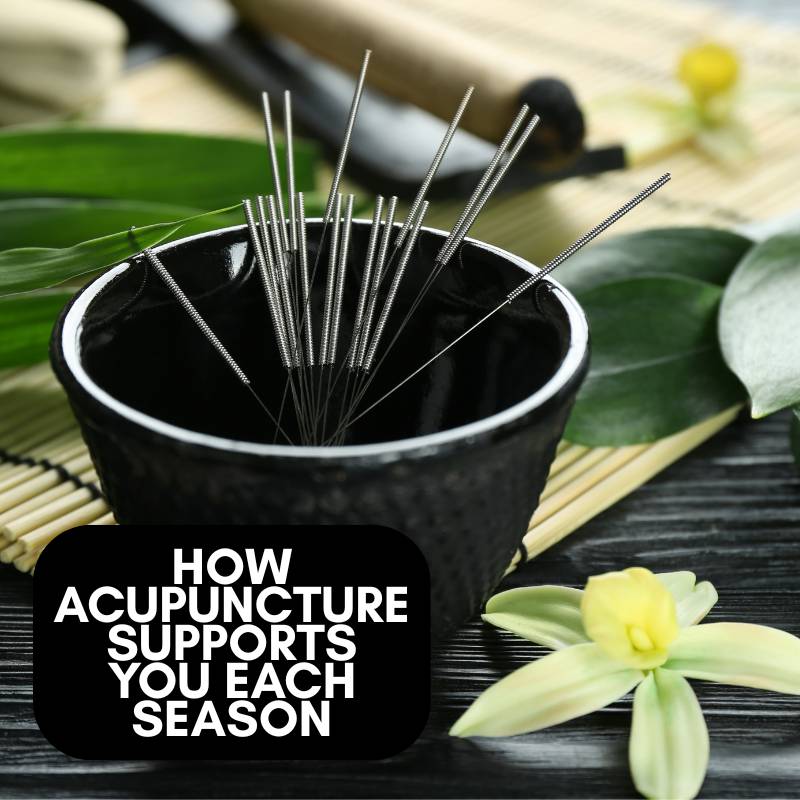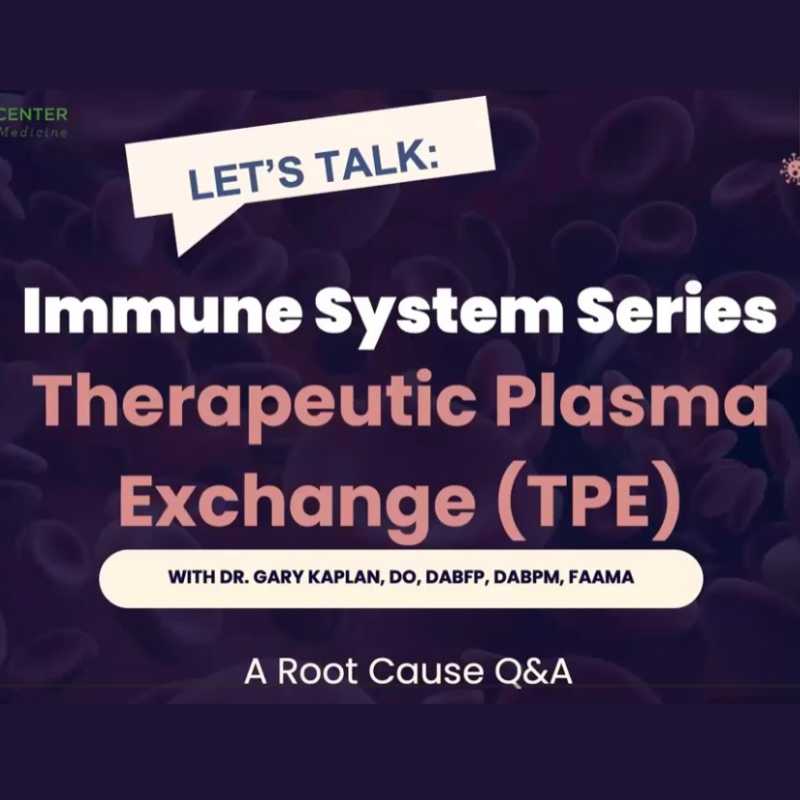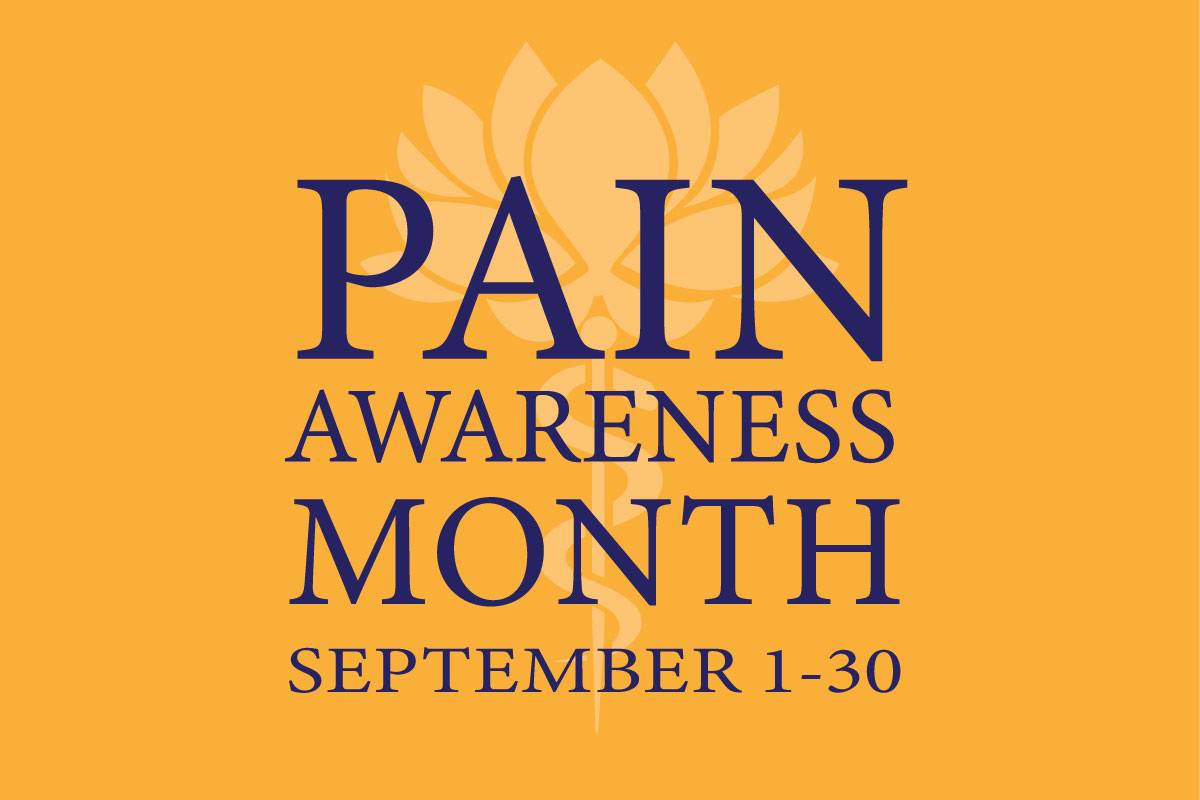
Balance Through the Seasons: Insights from Acupuncture
December 16, 2025/by Rebecca Berkson, L.Ac, Dipl.OM
5 Ways We Can Keep Your Immune System Strong
December 10, 2025/by Kaplan Center
Want to Take Your Workout to the Next Level Next Year? These Tips Can Help
December 8, 2025/by Kaplan Center
Dr. Kaplan’s Dos and Don’ts of the Holiday Season
December 3, 2025/by Kaplan Center
Let’s Talk Webinar – A Root Cause Q&A
December 2, 2025/by Kaplan Center
Navigating Holiday Meals with Gut Issues: Simple Tips for a Comfortable Season
December 1, 2025/by Chardonée Donald, MS, CBHS, CHN, CNS, LDN
Craniosacral Therapy for TMJ | Say Goodbye to the Daily Grind
November 19, 2025/by Patricia Alomar, M.S., P.T.
From Compassionate Care to Personal Healing: A Letter to My Patients
November 18, 2025/by Kaplan Center
8 Steps to a Healthier Gut—and a Longer, Healthier Life
November 18, 2025/by Kaplan Center
Mid-Life Irritability & Fatigue Improved by Hormonal Balancing
November 13, 2025/by Lisa Lilienfield, MD
From Challenges to Change: Dr. Kaplan on Healthcare’s Biggest Challenges
October 29, 2025/by Kaplan Center
Overlooked Dangers of Mold Exposure and How to Stay Safe – Dr. Kaplan Talks to WUSA9
October 27, 2025/by Kaplan Center
Let’s ‘Fall’ Into Wellness: A Nutritionist-Approved Immune-Boosting Recipe for Cold and Flu Season
October 13, 2025/by Chardonée Donald, MS, CBHS, CHN, CNS, LDN
PANS/PANDAS – When Sudden Symptoms Signal Something More
October 9, 2025/by Kaplan Center
Beating Burnout, A Nutritionist’s Perspective
October 1, 2025/by Chardonée Donald, MS, CBHS, CHN, CNS, LDN
3 Things That Can Happen After Stopping GLP-1s
September 11, 2025/by Chardonée Donald, MS, CBHS, CHN, CNS, LDN
What Families Need to Know About COVID and Flu Season
September 3, 2025/by Kaplan Center
September is Pain Awareness Month
September 1, 2025/by Kaplan Center
Dr. Kaplan Spoke to Northern Virginia Magazine About COVID, Flu, and Immunity — Here’s What You Should Know
August 14, 2025/by Kaplan Center
“Why Do I Feel Like Crap?”: The Overlap Between Long COVID and Perimenopause
July 30, 2025/by Kaplan CenterAre you looking to improve your overall wellness?
Personalized care you can trust.
Our integrative, non-surgical treatment approach is highly successful in maintaining wellness and also treating chronic pain and illness. For more than 30 years, we have delivered superior, cutting-edge health care in the Washington, DC area.
QuickLinks
Contact Information
Tel: 703-532-4892
Fax: 703-237-3105
6829 Elm Street, Suite 300
McLean, Virginia 22101
Map It
Hours of Operation
Mon – Thu : 8 am – 5 pm, ET
Fri : 8 am – 12 pm, ET
Hypothyroidism: Causes, Symptoms, Diagnosis and Management Options
/in Conditions, Hypothyroidism/by Kaplan CenterHypothyroidism is a medical condition that is characterized by the body’s inability to produce enough thyroid hormone. The thyroid gland (located in the neck area) produces thyroid hormone. This hormone is particularly important as it is responsible for a wide range of bodily functions. Thyroid hormone plays a role in our metabolism, it helps regulate our energy levels, weight and even has a hand in regulating our sex-drive. When levels of the thyroid hormone start to decline, individuals may experience a wide range of symptoms.
The symptoms of hypothyroidism can appear unconnected and vague. They usually develop slowly and mimic many other medical conditions. For these reasons, it can take years for people to realize that they are suffering from hypothyroidism.
Causes
Hypothyroidism can affect people of all ages and genders but it is especially common among women over age 60. Causes of hypothyroidism include:
Most cases of hypothyroidism are caused by the immune system mistakenly attacking the body’s own thyroid gland. This damages the gland and stops it from producing normal levels of thyroid hormone. Like other autoimmune conditions, autoimmune hypothyroidism has its own causes, triggers and mediators that keep the disease active. Factors such as extreme stress, trauma or gut inflammation can also play a role in worsening symptoms.
Less common causes of hypothyroidism include:
Symptoms
Many symptoms of hypothyroidism reflect changes that are caused by a lack of thyroid hormone in the body. Symptoms of hypothyroidism include:
On the face of it, these symptoms may appear random with little relation to each other. But the overall effect of low thyroid hormone in the body is a reduced metabolism. This slows down many of our normal functions and results in some of the symptoms listed above.
If you experience one or more of these symptoms, be sure to make an appointment to speak to one of our doctors. Our physicians are skilled in identifying hormonal problems, including thyroid disorders.
Diagnosis
For some patients, finally receiving the diagnosis of hypothyroidism can be a huge source of relief. Many have experienced symptoms that have gone undiagnosed for years, as the symptoms of hypothyroidism can be vague and may be mistaken for other conditions. That’s why our doctors will spend time with you to make sure that we have a good understanding of your situation and your symptoms.
At your first visit, your Kaplan physician will take time exploring the onset of your condition, the specific nature of your symptoms and the overall status of your health.
The diagnosis of hypothyroidism is made based on a combination of medical history, physical examination and diagnostic tests. Tests may include:
Other testing may be carried out to exclude different causes for your symptoms.
Management
The functional medicine approach to treating hypothyroidism is much more thorough than the traditional medicine approach. Our approach involves a more holistic view and may include a recommendation of the following:
Management will also take into account a number of factors such as the exact cause of the hypothyroidism, the symptoms you have been experiencing and the impact that it is having on your quality of life. Our goal is to find the best possible treatment options that work for your condition and your lifestyle.
If you suspect that you have a thyroid disorder or feel that you aren’t being treated well for a thyroid disorder that you do have, make an appointment to speak to one of our doctors.
References
3 Steps to Preventing a Migraine
/in Migraine, Treatments/by Gary Kaplan, DOAs anyone who suffers from the condition knows, a migraine is much more than a bad headache. It is a collection of neurological symptoms that may include throbbing pain on one side of the head, neck pain or stiffness, nausea, vomiting, and/or visual distortions called aura.
The severity of migraine symptoms can vary widely from person to person, ranging from minor issues with vision without pain to a general feeling of being unwell to being completely immobilized and unable to function. They can last anywhere from a few hours to a few days, and the frequency varies just as widely, from once or twice a week to once or twice a year. The one common denominator is that anyone that suffers from migraine headaches wants to know how to prevent them.
These 3 Steps Can Help to Prevent Migraine and/or Lessen its Frequency and Severity
1) Pinpoint What’s Triggering Your Migraine
The exact chain of events leading to a migraine is still not fully understood. Experts believe that migraine headaches are caused by abnormal brain activity, including dilation and constriction of the blood vessels within the brain. Although the neurological pathway is still unclear, a migraine is typically precipitated by one or more stimuli, commonly called “triggers.” Each person has their own unique set of triggers; the most common ones include stress, lack of sleep, hormone fluctuations, and a wide range of foods, from caffeine to artificial sweeteners.
One of the most effective ways of identifying your specific triggers is to keep a migraine journal. Keeping a record of when and where you get a migraine will help you figure out the foods, events, or other stimuli that typically precede your migraine attack. You can simply use a notebook to record these details or look for online resources or smartphone applications to help you keep a thorough migraine journal.
Questions? Give Us a Call!
703-532-4892 x2
However, even if you keep a meticulous journal, common migraine triggers such as nutritional deficiencies, hormone imbalances, and other underlying or co-existing medical problems may go unnoticed without medical testing. If you suffer from migraines, make sure that you get a comprehensive physical exam, and discuss testing for nutritional deficiencies or other co-existing conditions (common ones include depression, anxiety, high blood pressure, and sleep disorder) with your physician.
2) Avoid Your Personal Migraine Triggers
Once you have identified your migraine triggers, the next step is to make a personal commitment to eliminate them as much as possible. For you, this may be as simple as not eating certain foods. It may be necessary, however, for you to make more substantial changes, such as radically modifying your diet, eliminating or taking new medications, getting more sleep, and/or reducing your stress level through exercise and meditation. For most of us, making lifestyle changes isn’t easy, but migraine pain offers superb motivation. You can also ask your physician for advice and support (and refer to the Additional Resources section below).
By and large, the best way to lessen the frequency of migraines is to identify and avoid your personal migraine triggers.
3) Explore Your Migraine-Prevention Treatment Options
There is a wide range of clinically proven preventive treatments that can help reduce the frequency of a migraine attack so make an effort to explore your options! Nutritional interventions, acupuncture, manual therapies (Osteopathic Manipulative Medicine), injection therapies, herbal remedies, prescription medications – or a combination of these treatments – can help you to become migraine-free. The important thing is to stay open-minded in determining what can actually work for you.
Functional Medicine, the approach we take at the Kaplan Center, looks at each patient’s medical condition, medical history, and specific needs. By doing so, we’re able to provide a more personalized approach to treatment that will provide the best outcome for long-term migraine relief.
If you suffer from migraines, make sure to take the time to identify your own migraine triggers, get a comprehensive medical evaluation, and learn about your prevention and treatment options. Your head will thank you!
Additional Resources
Phone: 856-423-0043
Phone: 888-643-5552 or 312-274-2650
Phone: 800-352-9424 or 301-496-5751 (TDD: 301-468-5981)
We are here for you, and we want to help.
Our goal is to return you to optimal health as soon as possible. To schedule an appointment please call: 703-532-4892 x2
5 Overlooked Causes Of Migraine Headaches
/in Conditions, Migraine/by Gary Kaplan, DOWith migraine headaches, it’s important to look beyond the symptom to target the disease.
Lindsay was 23 years old, fresh out of college, and working at her dream job in Washington, D.C., as a congressional aid. Working in Congress, 10-hour days are the norm and for Lindsey, typically the first to arrive in the morning and last to leave in the evening – that was a short day.She was in charge not only of the Senator’s schedule but also required to be at his side taking notes at all his meetings, as well as keeping him informed as to who he was meeting with and why.
Young, energetic, with an excellent memory and a gift for attention to detail, Lindsay was a rapidly rising star in the highly competitive world of Capitol Hill. When we met, Lindsay was clearly intelligent, completely charming, and terrified that everything she had achieved could be completely undone by progressively crippling migraines.
She had suffered from migraines since she was 16 and had seen several physicians, including neurologists. Yet despite trials of numerous medications, the headaches had become more frequent and debilitating within the last year.
According to the American Migraine Foundation, 1 billion Americans of all ages suffer from migraines. Women are disproportionately affected, impacting approximately 1 in 5 American women versus 1 in 16 men.
For most migraine sufferers, the attacks occur one to two times a month or less, but about 4 million people agonize with a migraine 15 days or more a month. Migraine headaches are regarded as one of the top 20 of the world’s most debilitating medical illnesses.
Most physicians treat migraines as a disease, when in fact, they may be a symptom. By this, I mean that if you go to your doctor complaining of headaches that are diagnosed as migraines, the appointment typically ends with a prescription for medications to either prevent the occurrence of the headache or treat the acute headache, with little if any testing.
It’s rare for any consideration to be given to why you get the headaches. But, if you can find the underlying cause, you have a much better chance of finding the cure.
Questions? Give Us a Call!
703-532-4892 x2
Here are five frequently overlooked causes of migraine headaches:
1. Celiac disease and gluten intolerance
Celiac disease is an autoimmune disease to gluten, a protein found in the grains wheat, barley, and rye. About 1% of the population suffers from Celiac disease and unfortunately, it’s estimated that over 80% of the people with Celiac disease are undiagnosed.
Gluten intolerance (GI) affects about 6% of the American population. GI, while not associated with the damage to the lining of the small intestines as seen in Celiac disease, can make you almost as sick as Celiac disease.
Because eating grains causes Celiac disease and GI, we tend to think that this is an intestinal problem and expect to see people complaining of abdominal symptoms such as bloating, diarrhea and abdominal pain. In fact, both these diseases can present with minimal or no gastrointestinal symptoms and a large number of other symptoms including migraines, peripheral nerve damage, seizures, anxiety disorders, depression, and even schizophrenia. This was documented in an excellent review published in 2012.
You can screen for Celiac disease with a simple blood test, but we do not have any reliable testing for GI as of yet. Treatment for both conditions is the elimination of all gluten-containing foods from your diet.
Questions? Give Us a Call!
703-532-4892 x2
2. Magnesium deficiency
This may play a role in the occurrence of migraines in up to 50% of the people who suffer from this condition. (An excellent summary of this research was published in 2012.)
Magnesium is essential for a wide range of functions in the body and unfortunately, it’s easy to become deficient in magnesium and difficult to measure with a blood test.
Low nutritional intake, excess consumption of coffee, sodas, and alcohol, chronic stress, chronic illness, and intestinal problems (such as Celiac disease creating problems with absorption of magnesium) can all lead to deficiency.
The foods highest in magnesium, such as halibut, mackerel, boiled spinach, bran breakfast cereal, and nuts such as almonds, cashews, and pumpkin seeds, are not foods that typically make up much of our diets.
I encourage my patients suffering from migraines to make the necessary dietary changes and to supplement with between 250 and 500mg of magnesium a day.
One of the side effects of taking magnesium is diarrhea. If you develop diarrhea while taking magnesium, decrease the dose or try switching the type of magnesium you are taking.
We also treat many of our migraine patients with IV magnesium.
3. TMJ disorder
The temporal mandibular joint (TMJ) is the joint where your jaw connects with your skull. The joints are located in front of your ears on either side of your face. If your teeth are misaligned or you grind your teeth, a condition called bruxism, you can develop dysfunction and pain at the TMJ.
Symptoms of TMJ dysfunction include popping of the joint, pain at the joint, difficulty opening your mouth, and headaches. Proper diagnosis and treatment require that you see a dentist familiar with this condition. The headaches caused by TMJ can be misdiagnosed as migraines and TMJ can be a trigger for migraines.
4. Thyroid disease
Both low and high thyroid levels can cause headaches. Thyroid disease, usually associated with fatigue, dry skin, and hair loss when thyroid levels are low, and rapid heart rate and anxiety when thyroid levels are high, may present with migraine as the only significant symptom. This so-called subclinical presentation of thyroid disease can also be seen in adults and children.
Diagnosis can be made with a simple blood test.
5. Mold toxicity
This is highly controversial, but in my experience, mold toxicity is a significant cause of many diseases, including migraines. Molds can produce allergic reactions when inhaled, but the bigger concern is the toxins called mycotoxins that are chemical toxins present within or on the surface of the mold.
Mold toxins can affect almost every organ in the body, but the brain is almost always affected, resulting in neurotoxicity. People with mold toxicity have complaints that vary from mild cognitive impairment to symptoms that look like multiple sclerosis.
Headaches are a common complaint of people suffering from mold toxicity. Mold toxicity should be considered in anyone who has migraines and a history of exposure to water-damaged buildings where mold grows. Unfortunately, very few doctors know about this condition or how to evaluate a patient for the problem. For more information on mold toxicity, see the Biotoxicity and Neurotoxicity page on this website or visit Dr. Shoemaker’s website SurvivingMold.com.
As it turns out, Lindsay’s migraines were a result of being gluten intolerant and having low magnesium levels. Once she eliminated all gluten from her diet and improved her magnesium levels with magnesium IVs, her migraines dramatically improved.
We are here for you, and we want to help.
Our goal is to return you to optimal health as soon as possible. To schedule an appointment please call: 703-532-4892 x2